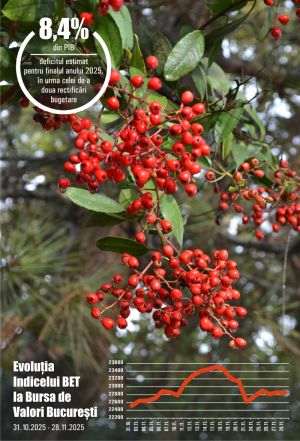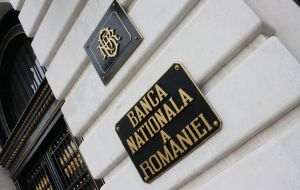• Interview with Dr. Mark Mobius, CEO of Franklin Templeton Emerging Markets Group
Reporter: How does the recently concluded conflict between Israel and Hamas, as well as the tensions concerning Iran, the international financial markets?
Dr. Mark Mobius: I don't think that these events have seriously affected the markets. From the United States we had a lot of positive news concerning the extraction of oil using hydraulic fracking, and this generates an increase in the output over the short term, even though, in the long term, it does not solve the issue of the hydrocarbon resources. Also, in the Kurdish region of Iraq, the oil output is growing at a significant pace. Thus, the situation in the Gaza Strip has a limited impact on the price of oil, especially as Israel and Hamas have reached a ceasefire agreement.
As for Egypt, the tensions in the country did not cause us to abandon our investments and it would seem that in that country, an agreement will be reached as well.
At this moment, the markets aren't heavily focused on the issues in that part of the globe.
The most pressing matter at the moment is Europe, more specifically the reaching of an agreement concerning Greece and the elections in Catalonia. But most of these aspects have already been priced in by the markets.
We are in a buyer's market, due to the great increase of the money supply, and all of these problems have, in a way, a positive effect, because they are causing the government to stimulate the markets with an increasing volume of money.
Reporter: What do you feel are the risks for the coming period? What about the opportunities?
Dr. Mark Mobius: There is the risk of a war against Iran, of the escalation of the situation in Syria, as well as of the failure of China and Japan to reach an agreement over the islands they are in dispute over. There are lots of risks, but they have a temporary nature and they have already been taken into consideration by investors.
The opportunities are in the frontier markets of Asia, Africa or Central and Eastern Europe. The countries in these regions are growing at a very quick pace, and the reforms which are taking place bode well for the markets in question as a whole, as well as for companies.
Reporter: You are advising the diversification of the portfolio as an investment strategy. In Romania, the funds managed by Franklin Templeton, with the exception 0f the Proprietatea Fund, have invested predominantly in OMV Petrom. What other holdings do you have on the domestic market?
Dr. Mark Mobius: We have invested in all of the five SIFs, in the Bucharest Stock Exchange (BVB), as well as in Banca Transilvania (TLV), BRD, Impact (IMP) and Alro (ALR).
Reporter: Do you think that two stock exchanges are too many for the Romanian equity market?
Dr. Mark Mobius: The Sibiu Exchange is not part of our consideration at all, because its core product is derivatives, and we don't work with that kind of products. The fact that there are two stock exchanges in Romania is not a problem. What is necessary is for the size and liquidity of both exchanges to grow.
Reporter: What is the advice you would offer to the BSE to increase its liquidity?
Dr. Mark Mobius: First of all, it needs to try and make dual listings on the Warsaw Stock Exchange possible. I think that the BSE is concerned that, following this step, liquidity would drop, and move to the Polish Stock Exchange. But I think it is forgetting that many investors can't act directly on the BSE, and the only way to enter Romania is through Poland. Because of that, there are high chances of liquidity increasing in Romania as well.
The essential factor, however, is the reformation of the state owned companies. These companies need to be privatized and taken public. Here, the government is faced with a dilemma: in order to get a good price following the sale of stakes, you need to reform the businesses, but, without the listing, it is difficult to do that, because the pressure required to improve their efficiency is not there. Because of that, I recommend to the government to list the minority stakes, and to later sell the remaining shares it owns, at a better price. The longer it postpones the listings, however, the more the situation of the state owned companies is deteriorating.
Reporter: This year, you have launched the first fund dedicated exclusively to Africa. What countries and economic sectors do you expect will generate the highest growth, on that continent?
Dr. Mark Mobius: The countries we expect will see the highest growth are Kenya, Nigeria, South Africa, Ghana, Egypt, Zimbabwe, Malawi, Senegal, Botswana, Mauritius and Sierra Leone. The sectors with a significant weight in the our portfolio are banking, with a weight of 27% of the total, the food industry with 15%, telecommunications (13%), commodities (11%), capital goods (9%), pharmaceuticals (4%), energy (4%) and retail (2%). The commodities sector does not have a significant weight in the portfolio, because many of the companies in this business are not listed on African exchanges, but rather in other countries, such as Great Britain.
Reporter: This year, an international asset management company and two of the largest brokerages on the stock market withdrew from Romania. What is the impact of these exits on the domestic stock market?
Dr. Mark Mobius: It is definitely not a good thing for the Romanian stock market. Romania needs foreign investments, and the companies which left are major international firms, which can attract large foreign investors. And their arrival represents a good thing for domestic investors as well. The more investors in the market, the better for everybody, because the market grows and becomes more liquid. Therefore, these exits have negative consequences.
But they are not the result of Romania's situation. In the banking sector, investment banking is contracting, and banks have abandoned all the markets where operations are not profitable.
Reporter: You've been present in Romania for quite some time. What makes Romania interesting to you?
Dr. Mark Mobius: The growth potential which exists here is the most interesting part. We see many companies which can grow greatly and become leaders on their market segment. If the necessary reforms are implemented, Romania could grow much more than it does now.
Reporter: What problems did you face here?
Dr. Mark Mobius: The main problem is the government's inability to go ahead with the reform plan and to do it quickly. There are major delays in the reorganization of the management of state owned companies and in their listing.
The legal system also needs to be reformed. It is amazing how just one shareholder (ed. note: Ioana Sfîrăială) can freeze the operations of a fund which has 9,000 shareholders. And most of the delays are procedural, they have no connection to the substance of the lawsuits. The judges have not yet succeeded in getting to the essence of the matter. The former management submitted the documents later than it was stipulated. It is a procedural mistake, it is not an attempt at fraud, at harming anybody. It is a mistake which should have been fixable. Unfortunately, this matter has generated significant delays in the activity of the Proprietatea Fund.
Reporter: Have you faced this kind of problems in other countries as well?
Dr. Mark Mobius: We did face similar situations, but none that serious.
Reporter: Will the parliamentary elections, scheduled to take place on December 9th, affect you in any way?
Dr. Mark Mobius: In general, elections delay the making of any decision. The current government does not intend to make any important decision until after the elections. Once they are over, however, we hope important measures will be taken.
Reporter: How do you view the situation at Hidroelectrica? Were there any official statements that it may exit insolvency by the end of the year?
Dr. Mark Mobius: The receiver said that exiting insolvency is not possible this year, which means we have to wait. Its filing for insolvency caused us to book the stake of the Fund in the company at zero, which has diminished the value of the NAV of the Proprietatea Fund. The fact that the insolvency procedure is set to end next year could allow us to put some of the company's assets back on the books. It remains to be seen whether we can do that.
But, the insolvency did have some positive effects, because it has eliminated the contracts with the so-called "clever boys" and has placed Hidroelectrica in a better position, from a commercial point of view. For the Proprietatea Fund, however, it is a negative element, because it is causing us to temporary lose an accounting asset.
Reporter: You have said that volatility, which is rising on all the markets, regardless of their type, represents the greatest risk that investors are faced with ...
Dr. Mark Mobius: I don't consider volatility as a risk, but rather as an opportunity. But everybody sees it as a risk. I am trying to explain to people that they should expect higher volatility, but they should not see it as a negative thing, but rather as a positive thing, because it allows them to buy interesting assets at low prices.
Reporter: Do you see any haven, under these circumstances of increased volatility?
Dr. Mark Mobius: There are no havens. Everybody wants to be safe, they want stock prices to rise continuously. But that is not possible. Some people think they are safe by buying US treasury bonds. But they pay an annual interest rate of less than 1%, which means that if we take into account the inflation rate, their buyers are actually losing money.
People need to understand that stock prices rise and fall, but if they invest in the right assets, in the long run they will be rewarded. You also need to try and buy at low prices, when everyone is pessimistic.
Reporter: When do you estimate we will see listings of major private companies in Romania?
Dr. Mark Mobius: Traditionally, the role of stock exchanges is to help companies raise money. At this moment, Romanian private companies do not come to the stock market because it does not exist in the true sense of the word, it is not liquid enough to allow them to raise the capital they need. And thus, they would rather ask their current shareholders to participate in share capital increases or resort to bank loans. If the BSE were to become more active, and the regulations concerning the listings were made simpler, then we would see companies coming to the market with new stock issues.
Especially if the state owned companies will come to the market, then the Bucharest Stock Exchange will attract more equity from investors. But at the moment, the market is too small for the private companies.
Reporter: How much time do you think will pass before the BSE is acquired by another stock exchange?
Dr. Mark Mobius: I don't see this happening anytime soon. Many regulations would have to be changed to make this process easier. The affiliation with the Warsaw Stock Exchange is hard to achieve because of the complications which exist at the level of their two respective Central Depositories. Romania needs to change its regulations, for the BSE to become connected to other stock exchanges and to get the ability to perform dual listings. Currently, the Vienna Stock Exchange is a competitor to the BSE, which is a bad thing. The exchanges have to be connected, to allow multiple listings. It would be a good idea to be connected to the Frankfurt Stock Exchange, which is the biggest of continental Europe. But, in order to do that, the problems which concern the relations between the two depositories need to be dealt with.
Reporter: Which sectors do you feel are the most attractive for investments? The energy sector is attracting a lot of interest at the moment...
Dr. Mark Mobius: The energy sector has two components: the oil and natural gas sector and the utilities sector. The first component is more attractive at the moment, because there are fewer constraints when it comes to prices. Because of that, Petrom can sell the oil and natural gas it finds at the market price. On the other hand, Hidroelectrica and Nuclearelectrica have price caps which they are not allowed to exceed, even when the production cost is higher than that price. Thus, in the utilities sector, the regulations which the government imposes are preventing companies from turning out a profit, which therefore prevents them from making investments. Because of that, Hidroelectrica was unable to perform a number of works for maintenance and the modernization of the facilities.
Therefore, there is a need for a change in the regulations, but this is a sensitive political element, because people don't want to pay high prices for electricity. In the case of Hidroelectrica, what is important is that contracts which only benefited the intermediaries have been eliminated. We need to continue with such reforms, and then we need to start raising prices to levels which allow the company to be profitable. Once we have done that, more investors will come in. Something similar happened in Brazil.
Romania needs more energy for the economy to grow. The only way to attract investments in the energy sector is to make it attractive for investors.
Reporter: The government wants to build two new reactors at Nuclearelectrica. In Europe, the trend is to reduce the production of nuclear energy, because of the accident at Fukushima. What future do you see for nuclear energy in Romania?
Dr. Mark Mobius: Nuclear energy has its place in Romania, but the trend is to migrate to wind energy, an area where Romania has a lot of potential. The companies in our portfolio are focusing on that sector.
A mix of thermal, nuclear, wind and solar energy is necessary. But wind energy is becoming increasingly viable, especially due to the new technologies, which allow the fast transportation of the electricity. The problem about this type of energy is that it is extremely difficult to store. But, if quick transmission is possible, then it becomes more attractive.
An advantage which wind energy has over nuclear energy is that it requires smaller upfront investments, and production can begin quicker. You don't have to complete the entire wind farm, production can start with just one turbine. On the other hand, in the case of nuclear energy, the investment is big and it takes a long time to break even. Because of that, I think it would be better to spend that money on wind energy, instead of expanding the nuclear capabilities.
Reporter: Do you have a message you would like to send to the Romanian business sector?
Dr. Mark Mobius: I hope that everyone will support the reform plans, so that the economy will become more effective and grow at a faster pace. I think that everyone wants that, because the living standard would increase as well.
Reporter: Thank you!




























































